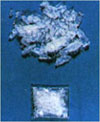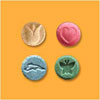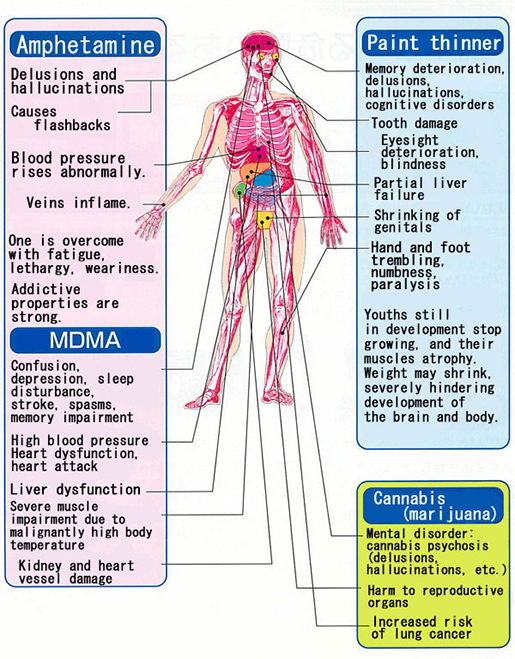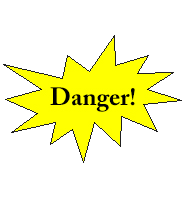
Canal Hamamatsu | Top Page > Medical & Health > Things you want to know
ここから本文です。
更新日:2022年7月19日
Things you want to know
Information on AIDS
AIDS (Acquired Immune Deficiency Syndrome)
Situation in Hamamatsu
There are 10 to 20 new cases of individuals infected with HIV or afflicted with AIDS reported each year in Hamamatsu. There is a growing percentage of individuals with sudden AIDS affliction, who don't realize they are infected with HIV until they begin showing symptoms of AIDS. Besides the reported cases, it is suspected that there are many infected individuals who are unaware that they are infected because they have not been tested.
What Kind of Disease Is It?
HIV, short for Human Immunodeficiency Virus, was identified in 1983 as the main pathogen that causes AIDS. HIV infection causes the human body's immune system to stop working normally, making it easier to contract diseases. However, HIV is not a highly contagious virus, meaning that an individual will not become infected simply by coming into contact with a carrier at school or at work.
Infection Routes
HIV can be found in large quantities in the blood, breast milk, semen and vaginal fluid of HIV infected persons.
1. Sexual transmission can occur when the infected blood, semen, or vaginal fluid of one partner comes into contact with the genital, oral, or rectal mucous membranes of another. Transmission by sexual contact accounts for the majority of infections.
2. Transmission by blood can occur when intravenous drug users share needles.
3. If a mother is infected with HIV, the mother's infant will also become infected during the course of the mother's pregnancy or at the time of birth. The infant can also become infected when breast-feeding. However, HIV is not a hereditary disease.
Symptoms
There is an asymptomatic period ranging from several years to around 10 years from the time of infection with HIV to the actual initial onset of AIDS. During this period there are no symptoms that an individual can particularly notice themselves. By simply undergoing regular medical check-ups carried out by a doctor, an infected individual can continue to live life as normal (clinical latency stage). However, when the individual does not realize that they are infected, HIV can be easily passed onto other people.
When the immune system stops functioning normally, viruses and bacteria that would otherwise be harmless invade the body and multiply. These are referred to as opportunistic infections (AIDS stage).
Blood tests are necessary to know if you have been infected, but it can take 6 to 8 weeks for antibodies to show up in the blood. If you are tested too early the results may be inaccurate. If you suspect you have been infected, it is best to wait at least 3 months before you are tested.
Medical Treatment
At present, no medicine exists that cures AIDS completely. However, due to the development of drugs that curb the onset of AIDS, and advances in the treatment of opportunistic infections, it has become possible to considerably delay the onset of AIDS. Once infected but while showing no symptoms, it is possible for an infected individual to live life as usual.
Preventative Measures
The best protection is to keep HIV from entering the body. Therefore, it is important to practice safe sex. Individuals risk being exposed each time they have unprotected sex. Condoms are an effective form of protection. Be sure to use condoms properly.
Other Types of Sexually Transmitted Diseases (STDs)
Genital chlamydia infection, gonorrhea, genital herpes, genital warts, syphilis, etc.
Out of these diseases, genital chlamydia infection is the most commonly reported disease in Japan. One of the problems with genital chlamydia infection is that many of those who are infected do not have any symptoms. Many do not get tested because of lack of symptoms, and it is feared that it will spread among young people in their teens and 20s.
Those who have a sexually transmitted disease are many times more likely to also contract HIV!!
Hamamatsu Healthcare Center Blood Testing for AIDS and Other STDs
The Hamamatsu Healthcare Center conducts blood tests and also offers consultations for those worried that they are infected.
For any inquiries please contact:
Public Hygiene & Sanitation Division
Information on Tuberculosis
Be well informed in order to protect yourself against Tuberculosis.
How is Tuberculosis Transmitted?
Tuberculosis is a contagious disease that can be passed on to anyone.
When an individual with the disease has the bacterium in their phlegm and sneezes or coughs, the bacterium spreads into the air. The disease is then passed on to others when the bacterium is inhaled.
However, even when the bacterium is inhaled, infection can be avoided if it does not continue any further than the nose, throat or bronchial tube.
When an individual's immunity to diseases weakens, there is an increased chance of them becoming infected.
Symptoms
A nagging cough may be a sign of tuberculosis.
Tuberculosis starts out with symptoms similar to a cold such as a cough, phlegm, tiredness or a slight fever.
If you have a nagging cough that will not go away, make sure to go and see a doctor.
Be sure to have the disease identified and treated as soon as possible.
Make sure you undergo health check-ups
Make sure you undergo chest X-rays.
It is important to keep taking your medicine.
There is now effective medicine available that treats tuberculosis. Taking 3 to 4 different kinds of medicine over a period of 6 to 9 months can cure tuberculosis.
If the bacterium is not contained in the phlegm of the carrier, it is possible to treat the disease without having to be hospitalized.
It is important to continue taking your medicine every day until your doctor indicates that you may stop taking the medicine because you have been cured.
For any inquiries please contact:
Public Hygiene & Sanitation Division
Say "No, Absolutely Not!" to Drug Abuse.
The terrors of drug abuse go beyond harm to the individual's mental and physical health. They extend outward to society at large, causing domestic violence and disintegration of families, as well as tragedies such as murder and arson. Illegal use of drugs such as narcotics and stimulants leads to addiction, and can cause delusions and hallucinations leading to violence against oneself and others.
Those who intend to try them just once become addicted, destroying the only life they have.
Amphetamines, marijuana, MDMA, designer drugs, and organic solvents are horrific drugs.
| Amphetamines | ||||
|---|---|---|---|---|
 |
Amphetamines, known by names such as "S" or "speed," are particularly addictive even among illegal drugs. Over time, its use causes severe brain damage and makes it impossible to live a normal life. One heavy dose can even end in death by acute toxicity. | |||
| Cannabis (marijuana) | ||||
 |
Cannabis can come as dried cannabis leaves or as hashish, a solidified resin, and is known by names such as “happa,” “grass,” and “choco.” Both can cause abnormal sensations, irrational excitement, and depression of mood. Repeated use can lead to “amotivational syndrome,” where one lies around idly everyday with no desire to do anything. | |||
| MDMA | ||||
 |
MDMA is a fearsome synthetic tablet drug, also known as “ecstasy,” “X (batsu),” and “tama,” which simultaneously induces excitement and hallucinations. Abuse can lead to confusion, depression, sleep disturbance, and agitation, sometimes lasting for weeks. It also causes dehydration, high blood pressure, and heart and liver dysfunction. | |||
| Designer drugs | ||||
| A designer drug has ingredients with a similar chemical composition to narcotics or amphetamines and acts as a central nervous system stimulant/depressant or hallucinogen, causing convulsions, impaired consciousness, breathing difficulty, and other serious health problems, sometimes even leading to death. There have been many health problems and serious traffic accidents due to the use of Dangerous Drugs including designer drugs, and it is becoming a problem nationwide. | ||||
 Herbal incense |
 Liquid aroma |
 Herbal blend |
 Bath salts |
|
| Organic solvents | ||||
 |
Abuse of paint thinner, toluene, glue, and other organic solvents harms the brain (central nervous system). It can cause blindness, tooth damage, numb and unresponsive hands and feet, anemia, and in the worst cases, death. Continued abuse obstructs the healthy development of the mind and body. | |||
Legal restrictions on drug abuse
(This is a table of penalties for cases of illegal drug use. This is not a comprehensive directory of penalties.)
| Law | Drug | Cultivation | Transfer or receipt | Possession | Use |
|---|---|---|---|---|---|
| Stimulants Control Act | Amphetamines | Non-commercial: up to 10 years of imprisonment Commercial: at least 1 year of limited-term imprisonment Additional fine of up to 5 million yen depending on circumstances |
|||
| Narcotics and Psychotropics Control Act | Heroin | Non-commercial: up to 10 years of imprisonment Commercial: at least 1 year of limited-term imprisonment Additional fine of up to 5 million yen depending on circumstances |
|||
| Other narcotics (morphine, cocaine, MDMA) | Non-commercial: up to 7 years of imprisonment Commercial: at least 1 year of limited-term imprisonment Additional fine of up to 5 million yen depending on circumstances |
||||
| Cannabis Control Act | Cannabis (marijuana) | * | Non-commercial: up to 5 years of imprisonment Commercial: up to 7 years of imprisonment Additional fine of up to 2 million yen depending on circumstances |
||
| Pharmaceutical Affairs Act | Designer drugs | Non-commercial: up to 3 years imprisonment, a fine of up to 3 million yen, or both Commercial: up to 5 years imprisonment, a fine of up to 5 million yen, or both |
|||
* Non-commercial: up to 7 years of imprisonment
Commercial: up to 10 years of imprisonment, additional fine of up to 3 million yen depending on circumstances
Dependence and Tolerance
Drug usage leads to dependence, making the user want to keep taking it repeatedly. This is especially the case with amphetamines, where the psychological dependency is so strong that the user feels they cannot live without the drug. There are many reasons for being unable to give up drugs, with some people saying that they are just unable to forget the feeling of the liquid flowing into their veins from the needle. However, the majority of people cannot give up not because they are seeking a high, but rather because they are desperate to escape the mental anguish and physical suffering produced by withdrawal symptoms that all occur when the effects of the drug wear off. Furthermore, drug usage leads to tolerance, where the same dosage becomes ineffective as the user continues using the drug. The user must continually increase the amount of substance they use and the frequency they use it to achieve the desired effect. This vicious circle of dependence and tolerance means that drug users are unable to quit even if they want to.
Flashbacks
If, through hospital treatment, the drug user somehow is released from the chains of dependence and tolerance, it still does not mean that they are able to return to the same state of health that they had before the abuse started. Even if they have the appearance of having returned to normal life, there are cases where psychological disturbances such as delusions and hallucinations recur suddenly due to some kind of stimulus. These are called flashbacks, and can be caused by the smallest of stimuli in everyday life such as stress or the consumption of alcohol. The damaging effects of drug abuse are permanent.
The damaging effect of drugs on your body

* In the case of designer drugs, there is a risk of experiencing a combination of the above effects.
Say "No, Absolutely Not!" to Dangerous Drugs!!

Dangerous Drugs are sold labeled as "legal drugs" or "legal herbs," but they are extremely dangerous substances. They are sold in stores and on the internet under labels such as "herbal incense," "liquid aroma," "herbal blend," and "bath salts," giving the impression that these drugs are safe. In actuality, these drugs include ingredients with a similar chemical composition to narcotics, amphetamines, cannabis, and other drugs. As with narcotics and amphetamines, these terrible drugs can destroy a person's life.
Examples of Dangerous Drugs
 Herbal incense |
 Liquid aroma |
 Herbal blend |
 Bath salts |
DO NOT Use Dangerous Drugs!!
If you use Dangerous Drugs, you may experience convulsions, impaired consciousness, breathing difficulties, and other serious health problems, sometimes leading to death. You may also take extraordinary actions, causing injury to others. The effects on your body are no different than those from narcotics or amphetamines. Not only that, but even more dangerous ingredients might also be included. Health problems and traffic accidents due to Dangerous Drugs are happening one after another nationwide. There have even been traffic accidents due to the use of Dangerous Drugs in our city as well.
Due to their affordable prices and easy availability, more than a few people are casually trying these drugs. It is a mistake to believe that they are safe because they are unregulated. Using Dangerous Drugs even once can lead to drug dependence, possibly becoming a gateway for abuse of drugs such as narcotics and amphetamines.
Even Just Possessing Designer Drugs is Illegal
A designer drug has ingredients with a similar chemical composition to narcotics or amphetamines and acts as a central nervous system stimulant/depressant or hallucinogen, causing convulsions, impaired consciousness, breathing difficulty, and other serious health problems. In the worst cases, it may even cause death.
From April 1, 2014, the importation, production, sale, possession, use, purchase, or transfer of designer drugs has been newly prohibited. Those who do so will be subject to up to 3 years of imprisonment, a fine of up to 3 million yen, or both. If done so for commercial purposes, they will be subject to up to 5 years imprisonment, a fine of up to 5 million yen, or both.
Many Dangerous Drugs include narcotics or designer drugs, or ingredients similar to designer drugs.
Do not buy, use, or get involved with Dangerous Drugs!!
Preventing Drug Abuse
Drug abuse is also called drug dependence and this is a medical condition. As it is a medical condition, it cannot be cured solely through the efforts of those close to the drug addict. The drug abuser must recognize and admit that they have become an addict. It is essential that the drug addict takes age-appropriate responsibility for their actions, and for their family not to mollycoddle them. In order to prevent drug abuse and dependence, children should be approached with the following attitudes.
- 1. Have regular communication between parents and children.
- 2. Treat problems as family problems and bring everyone together to discuss them.
- 3. Cooperation among parents and schools. Assess the situation and contact specialist organizations.
- 4. Don't coddle them. Watch over them and let them recover on their own.
- 5. Don't forget to trust each other. Make sure to do what you said you would.
- 6. Don't try to rush a resolution. Recognize what is important to them. Love them and trust in the abilities of young people to recover and mature.
Hamamatsu City Drug Counseling
Hamamatsu Healthcare Center, TEL 053-453-6135